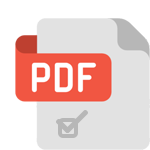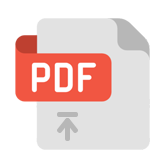Political Islam: A Comparative Study of Malaysia and Indonesia
Keywords:
Comparison, Governance, Indonesia, Malaysia, Political IslamAbstract
This study aims to uncover the history and nuances of political Islam in Malaysia and Indonesia. This research employs a qualitative methodology, specifically library research through content analysis, for its flexibility in systematically analyzing books and journal articles by identifying, coding, and categorizing patterns in the data, thereby providing a comprehensive understanding of their similarities and differences. Malaysia, a Southeast Asian federal monarchy, gained independence in 1957 after a history of colonial occupation. Its multiethnic population includes indigenous tribes and international traders, with Islam as the official religion, though non-Muslims practice freely. Traditional values and the Sultan's role as protector of religion are central to Malay society. Political decisions often weigh ethnic and religious factors. Islam's political role in Malaysia has varied, with prime ministers interpreting its influence differently. Debates range from advocating a full Islamic system to separating religion from politics. Policies have driven Islamization in education, art, music, and clothing, affecting party dynamics between Pan-Malaysian Islamic (PAS) and the United Malays National Organisation (UMNO). UMNO has maintained Malay Muslim support by integrating Islamic sentiments. In Indonesia, a Muslim-majority nation, implementing Islam in politics is complicated by its diverse population. The Pancasila ideology, aligned with Islamic norms, emphasizes monotheism, justice, unity, consultation, and social justice. Despite deep historical roots, integrating Islamic principles in governance requires tolerance of minority views. Political Islam in Indonesia is diverse, with Islamic parties and new Islamist groups influencing governance. Traditional organizations like Nahdlatul Ulama (NU) and Muhammadiyah face competition from groups using media to reshape religious authority.
References
Ahmad, A. M. (1978). Al-Fikr al-Siyasi Li al-Imam Muhammad Abduh. al-Maiat al-Misriyyat al-’Ammat li al-Kitab.
Ahmad, I. (1985). The position of Islam in the constitution of Malaysia. In A. Ibrahim, S. Siddique, & Y. Hussain (Eds.), Readings on Islam in Southeast Asia (pp. xx–xx). Institute of Southeast Asian Studies.
Ahmad Fauzi Abdul Hamid. (2002). The formative years of the dakwah movement: Origins, causes and manifestations of Islamic resurgence in Malaysia. IKIM Journal, 10(2), 87–124.
Ahmad Mustapha Hassan. (2010, November 30). 1 Malaysia — A blurred and confused concept. Retrieved October 5, 2014, from https://www.malaysia-today.net/2010/11/30/1-malaysia-a-blurred-and-confused-concept/
Akmaliah, W. (2020). The demise of moderate Islam: New media, contestation, and reclaiming religious authorities. Indonesian Journal of Islam and Muslim Societies, 10(1), 1.
Anwar, Z. (1987). Islamic revivalism in Malaysia: Dakwah among the students. Pelanduk Press.
Arifianto, A. R. (2019). Islamic campus preaching organizations in Indonesia: Promoters of moderation or radicalism? Asian Security, 15(3), 330.
Arifianto, A. R. (2020). Rising Islamism and the struggle for Islamic authority in post-Reformasi Indonesia. TRaNS: Trans-Regional and -National Studies of Southeast Asia, 8(1), 39–41.
Ayubi, N. N. (1981). Political Islam, religion and politics in the Arab world. Routledge.
Azhar, M. (1997). Filsafat politik, perbandingan Islam dan Barat. Raja Grafindo Persada.
Bakar, O. (2006, July 7). Wawancara: Biarkan mereka berdebat. Siasah.
Bahrain, D. R. (2014, December 19). Bukti toleransi Islam terhadap agama lain. Muslim.or.id. Retrieved February 9, 2017, from https://muslim.or.id/23967-bukti-toleransi-islam-terhadap-agama-lainnya.html
Camroux, D. (1996). State responses to Islamic resurgence in Malaysia: Accommodation, co-option and confrontation. Asian Survey, 36(9), 852–868.
Deputy Prime Minister. (1982, April 12). Utusan Malaysia. Cited in Nair (note 22).
Edip, E. (1911). Malezya Müslümanları. Sebilürreşad, 444–446.
Ensiklopedi Umum. (1973). Ensiklopedi Umum. Kanisius.
Esposito, J. L., & Voll, J. O. (1999). Demokrasi di negara-negara Muslim. Penerbit Mizan.
Fernando, J. M. (2006). The position of Islam in the constitution of Malaysia. Journal of Southeast Asian Studies, 37(2), 249–266.
Funston, J. (1981). The politics of Islamic reassertion: Malaysia. In M. Ayoob (Ed.), The politics of Islamic reassertion. St. Martin’s Press.
Gomez, E. (2007). Politics in Malaysia: The Malay dimension. Taylor & Francis Group.
Habib, S. (2008, November 14). Najib pledges to continue Islam Hadhari. The Star.
Hussain, S. A. (2002). Muslim politics and the discourse on democracy. In L. K. Wah & K. B. Teik (Eds.), Democracy in Malaysia: Discourses and practices (pp. 74–107). Curzon.
Kara, İ. (2003). Din ile modernleşme arasında çağdaş Türk düşüncesinin meseleleri. Dergâh Yayınları.
Kepel, G. (2002). Jihad: The trail of political Islam. I.B. Taurus.
Khoo, B. T. (1995). Paradoxes of Mahathirism: An intellectual biography of Mahathir Mohamad. Oxford University Press.
Kıtalararası. (2021, October 6). İslam dünyasında reform: Endonezya Türkiye’nin yapamadığına talip. Retrieved March 25, 2024, from https://kitalararasi.com/2021/10/islam-dunyasinda-reform-endonezya-turkiyenin-yapamadigina-talip-ahmet-kuru/
Liow, J. (2009). Piety and politics: Islamism in contemporary Malaysia. Oxford University Press.
Mahathir, M. (1984). Speech at the 3rd international seminar on Islamic thoughts. Foreign Affairs Malaysia, 17(3), 226–231. Cited in Khoo (note 12), p. 167.
Mandaville, P. (2007). Globalization and the politics of knowledge: Pluralizing authority in the Muslim world. Theory, Culture, and Society, 24(2), 101–115.
Mehden, F. R. V. D. (1985). Kebangkitan kembali Islam di Malaysia. In Islam dan perubahan sosial politik di negara sedang berkembang. PLP2M.
Nagata, J. (1984). The reflowering of Malaysian Islam: Modern religious radicals and their roots. University of British Columbia Press.
Nair, S. (1997). Islam in Malaysian foreign policy. Routledge.
Noor, F. A. (2002). PAS post-Fadzil Noor: Future directions and prospects. Trends in Southeast Asia, TRS 8/02. Institute of Southeast Asian Studies (ISEAS).
Özay, M. (2013). Malezya’da din-devlet ilişkisine kısa bir bakış: Dr. Mahathir Mohamad dönemi İslamlaştırma politikaları ve yansımaları. Tarih Kültür ve Sanat Araştırmaları Dergisi, 106–128.
Putra, E. P. (2016). Persentase umat Islam di Indonesia jadi 85 persen. Republik. Retrieved February 9, 2017, from https://news.republika.co.id/berita/o0ow4v334/persentase-umat-islam-di-indonesia-jadi-85-persen
Qodir, Z. (2023). Conservative turn and Islamic populism: Challenges Muhammadiyah and Nahdlatul Ulama in contemporary politics. Religious: Jurnal Studi Agama-Agama dan Lintas Budaya.
Razak, N. (2009, October 16). Upholding tradition, realising changes. The Star.
Ridha, R. (1341H). Al-Khilafah au al-Imamah al-udzma. Al-Manar.
Roy, O. (2010). İslam’a karşı laiklik. Agora Kitaplığı.
Sadzali, M. (1990). Islam dan tata negara, ajaran, sejarah dan pemikiran. UI Press.
Slama, M. (2017). A subtle economy of time: Social media and the transformation of Indonesia’s Islamic preacher economy. Economic Anthropology, 4(1), 95.
Sloane, P. (1999). Islam, modernity and entrepreneurship among the Malays. St. Martin’s Press.
Zainuddin, A. R. (1992). Kekuasaan dan negara: Pemikiran Ibnu Khaldun. Gramedia.
Downloads
Published
Issue
Section
License
Copyright (c) 2024 Mohammad Hasan Kabir, Ghina Halime Nur Mete, Nur Adillah Omar, Sanny Nofrima (Author)

This work is licensed under a Creative Commons Attribution-ShareAlike 4.0 International License.















